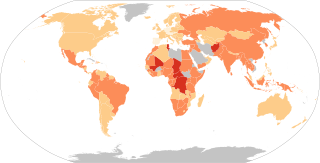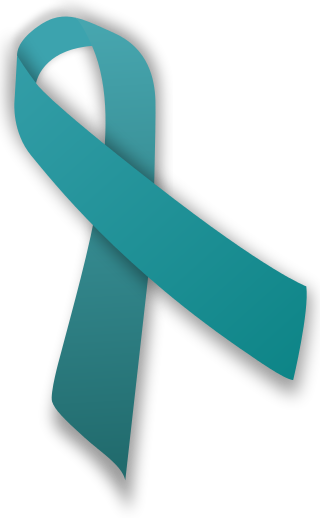Related Research Articles

Comfort women were women and girls forced into sexual slavery by the Imperial Japanese Armed Forces in occupied countries and territories before and during World War II. The term "comfort women" is a translation of the Japanese ianfu (慰安婦), which literally means "comforting, consoling woman". During World War II, Japanese troops forced hundreds of thousands of women from Australia, Burma, China, the Netherlands, the Philippines, Japan, Korea, Indonesia, East Timor, New Guinea and other countries into sexual enslavement for Japanese troops; however, the majority of the women were from Korea. Many women died or died by suicide due to brutal mistreatment and sustained physical and emotional distress. After the war, Japan's acknowledgment of the comfort women's plight was minimal, lacking a full apology and appropriate restitution, which damaged Japan's reputation in Asia for decades. Only in the 1990s did the Japanese government begin to officially apologize and offer compensation. However, apologies from Japanese officials have been criticized as insincere.
Some victims of rape or other sexual violence incidents are male. It is estimated that approximately one in six men experienced sexual abuse during childhood. Historically, rape was thought to be, and defined as, a crime committed solely against females. This belief is still held in some parts of the world, but rape of males is now commonly criminalized and has been subject to more discussion than in the past.
Sexual violence is any harmful or unwanted sexual act—or attempt to obtain a sexual act through violence or coercion—or an act directed against a person's sexuality without their consent, by any individual regardless of their relationship to the victim. This includes forced engagement in sexual acts, attempted or completed, and may be physical, psychological, or verbal. It occurs in times of peace and armed conflict situations, is widespread, and is considered to be one of the most traumatic, pervasive, and most common human rights violations.
In scholarly literature and criminology, gang rape, also called serial gang rape, party rape, group rape, or multiple perpetrator rape, is the rape of a single victim by two or more violators. Gang rapes are forged on shared identity, religion, ethnic group, or race. There are multiple motives for serial gang rapes, such as for sexual entitlement, asserting sexual prowess, war, punishment, and, in up to 30% of cases, for targeting racial minorities, religious minorities, or ethnic groups.
Rape can be categorized in different ways: for example, by reference to the situation in which it occurs, by the identity or characteristics of the victim, and by the identity or characteristics of the perpetrator. These categories are referred to as types of rape. The types described below are not mutually exclusive: a given rape can fit into multiple categories, by for example being both a prison rape and a gang rape, or both a custodial rape and the rape of a child.
Rape by gender classifies types of rape by the sex and gender of both the rapist and the victim. This scope includes both rape and sexual assault more generally. Most research indicates that rape affects women disproportionately, with the majority of people convicted being men; however, since the broadening of the definition of rape in 2012 by the FBI, more attention is being given to male rape, including females raping males.
Statistics on rape and other acts of sexual assault are commonly available in industrialized countries, and have become better documented throughout the world. Inconsistent definitions of rape, different rates of reporting, recording, prosecution and conviction for rape can create controversial statistical disparities, and lead to accusations that many rape statistics are unreliable or misleading.
Rape crisis centers in the United States, usually capitalized as Rape Crisis Center and often abbreviated as RCC, are community-based organizations affiliated with the anti-rape movement in the U.S. Rape crisis centers in other countries offer similar services, but have different histories and vary in their organizational structure.

Rape is a type of sexual assault involving sexual intercourse or other forms of sexual penetration carried out against a person without their consent. The act may be carried out by physical force, coercion, abuse of authority, or against a person who is incapable of giving valid consent, such as one who is unconscious, incapacitated, has an intellectual disability, or is below the legal age of consent. The term rape is sometimes used interchangeably with the term sexual assault.
A rape crisis centre, also known as a sexual assault crisis centre or sexual assault referral centre (SARC), is a specialised centre to support victims of rape or other sexual assault, both in the immediate aftermath of the assault and in the months and sometimes years following the attack. They are usually situated in a secure location and employ a multidisciplinary team of practitioners to provide medical, psychological, and practical support to the victim.
Corrective rape, also called curative rape or homophobic rape, is a hate crime in which somebody is raped because of their perceived sexual orientation. The common intended consequence of the rape, as claimed by the perpetrator, is to turn the person heterosexual.
The anti-rape movement is a sociopolitical movement which is part of the movement seeking to combat violence against and the abuse of women.

The Democratic Republic of the Congo, and the east of the country in particular, has been described as the "Rape Capital of the World", and the prevalence and intensity of all forms of sexual violence has been described as the worst in the world. Human Rights Watch defines sexual violence as "an act of a sexual nature by force, or by threat of force or coercion", and rape as "a form of sexual violence during which the body of a person is invaded, resulting in penetration, however slight, of any part of the body of the victim, with a sexual organ, or of the anal or genital opening of the victim with any object or other part of the body."

The rate of sexual violence in South Africa is among the highest recorded in the world. Police statistics of reported rapes as a per capita figure has been dropping in recent years, although the reasons for the drop has not been analysed and it is not known how many rapes go unreported. More women are attacked than men, and children have also been targeted, partly owing to a myth that having sex with a virgin will cure a man of HIV/AIDS. Rape victims are at high risk of contracting HIV/AIDS owing to the high prevalence of the disease in South Africa. "Corrective rape" is also perpetrated against LGBT men and women.

The Victim Rights Law Center (VRLC) is a non-profit organization that provides free legal services to victims of rape and sexual assault in Massachusetts and Oregon. Established in 2003, it became the first nonprofit law center in the United States solely dedicated to serving the legal needs of sexual assault victims. The VRLC mission is to "provide legal representation to victims of rape and sexual assault to help rebuild their lives and to promote a national movement committed to seeking justice for every rape and sexual assault victim." VRLC also seeks to transform the legal response to sexual assault in the United States.
Sexual Assault Awareness Month (SAAM) is an annual campaign to raise public awareness about sexual assault and educate communities and individuals on how to prevent sexual violence in the United States. It is observed in April.
Violence against men are violent acts that are disproportionately or exclusively committed against men or boys. Men are over-represented as both victims and perpetrators of violence.
Mass sexual assault is the collective sexual assault of women, men and sometimes children, in public by groups. Typically acting under the protective cover of large gatherings, victims have reported being groped, stripped, beaten, bitten, penetrated and raped.
Kuros is an American online retailer, based in Austin, Texas, that sells sportswear to women and men worldwide. The company was founded in 2013 by Kuro Tawil an entrepreneur from Austin who believes every woman has the right to defend themselves from crimes like assault and rape. The company sells products made in Nepal, with every Kuros product sold the company donates a can of pepper spray to at risk populations of women.

Sexual assault of LGBT people, also known as sexual and gender minorities (SGM), is a form of violence that occurs within the LGBT community. While sexual assault and other forms of interpersonal violence can occur in all forms of relationships, it is found that sexual minorities experience it at rates that are equal to or higher than their heterosexual counterparts. There is a lack of research on this specific problem for the LGBT population as a whole, but there does exist a substantial amount of research on college LGBT students who have experienced sexual assault and sexual harassment.
References
- ↑ non-governmental organisation http://www.sanews.gov.za/south-africa/lotto-board-boosts-women-owned-charities Archived 2015-04-16 at the Wayback Machine
- ↑ "W.A.R calls for a War on Rape in SA | Cii Broadcasting". Archived from the original on 2015-07-17. Retrieved 2015-04-07.
- ↑ Anne (7 October 2007). "Boerewors Express - news for South African expats world-wide: Helping rape survivors". Archived from the original on 2015-07-22. Retrieved 2015-04-07.
- ↑ "Janine Rowley". Archived from the original on 2015-04-02. Retrieved 2015-04-07.
- ↑ "Shocking rape video goes viral in South Africa,says CNN". News24. 19 April 2012. Archived from the original on 2016-03-04. Retrieved 2018-12-10.
- ↑ Tawil, Kuro (23 March 2015). "Fighting the War on Women: South Africa 2015". HuffPost . Archived from the original on 2015-10-30. Retrieved 2018-12-10.